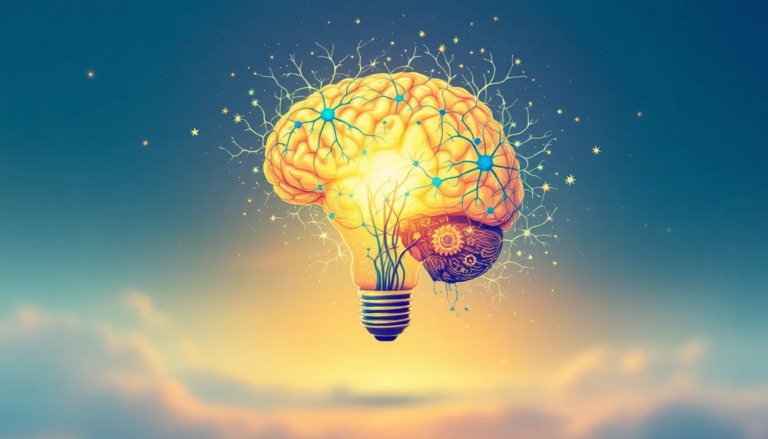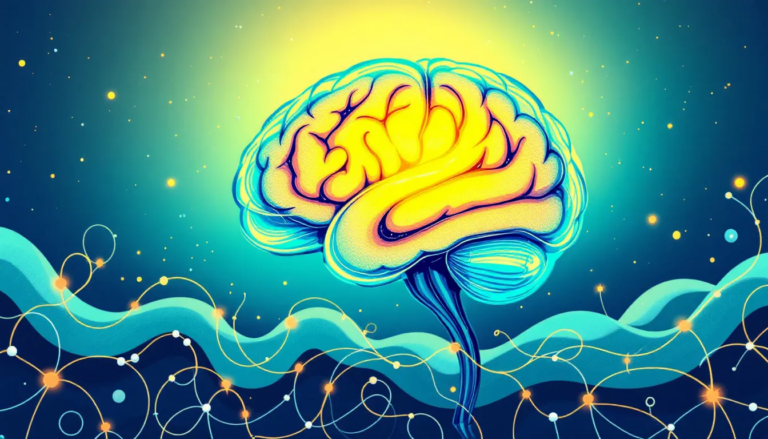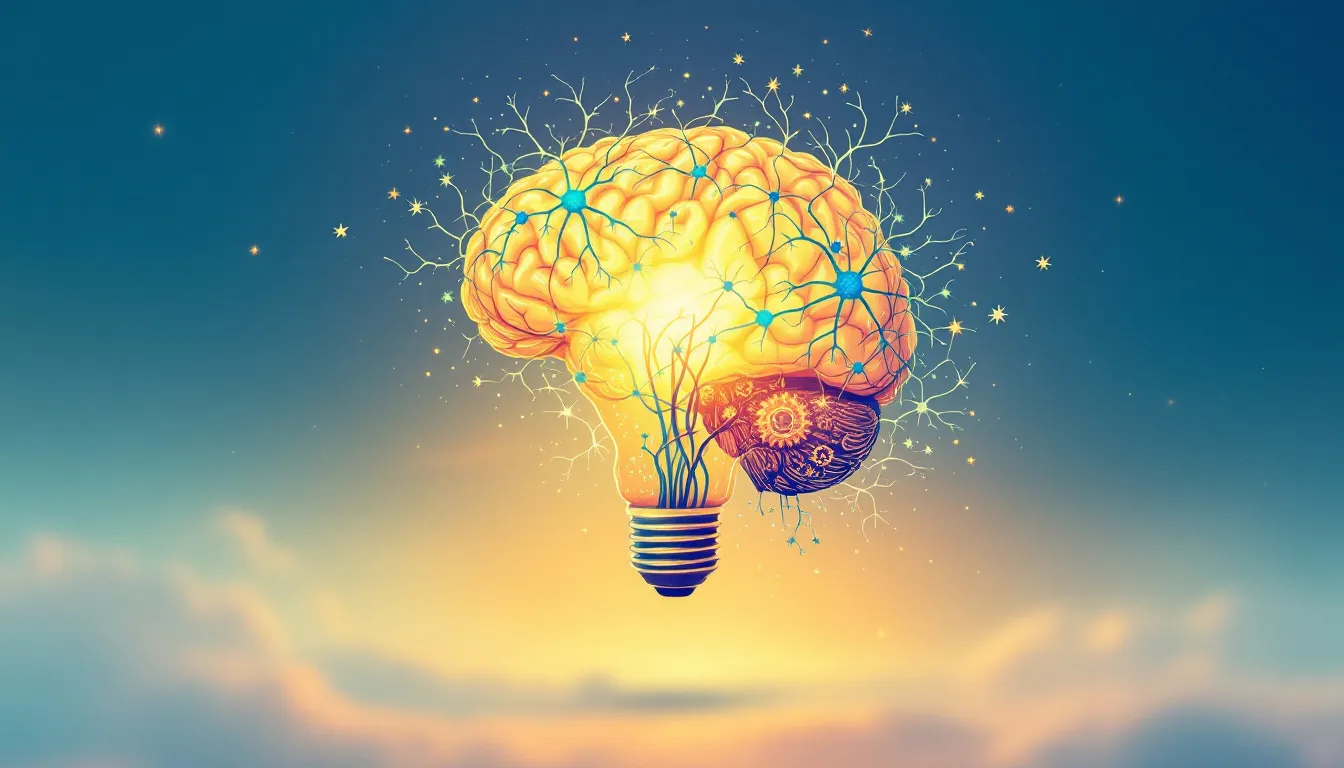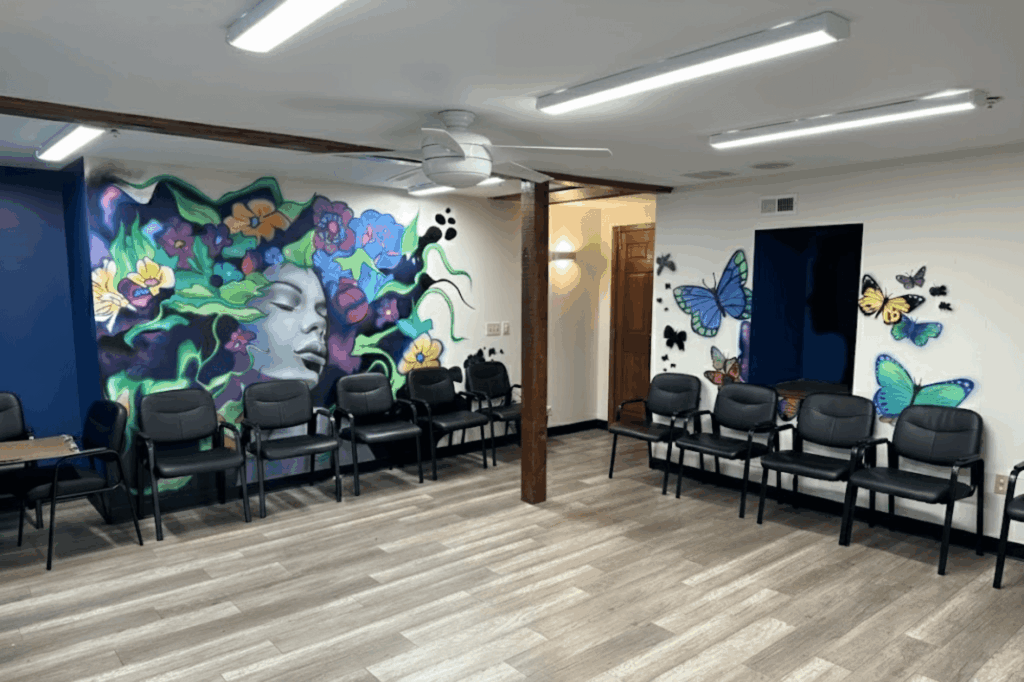Rewiring the brain from addiction can take months to years. Typically, at least 90 days of abstinence is needed to see improvements, raising the question of how long to rewire brain from addiction. Factors like substance type, addiction severity, and duration of use influence this period. This article details these factors and the brain recovery timeline.
Key Takeaways
Neuroplasticity is critical for addiction recovery, allowing the brain to reshape neural pathways and support healthier behaviors.
The brain rewiring process varies among individuals and can take several months to years, emphasizing the importance of patience and realistic expectations.
Factors such as the type and duration of addiction, individual brain chemistry, and ongoing support networks significantly influence the duration and success of recovery.
Table of Contents
Understanding Brain Rewiring in Addiction Recovery

Neuroplasticity is the brain’s ability to change and adapt, a fundamental aspect of recovering from addiction. This incredible capability allows the brain to reshape its neural pathways, supporting healthier behaviors and aiding in the recovery journey. Neuroplasticity remains active throughout life, enabling both children and adults to learn and adapt. This means that regardless of when you start your recovery journey, your brain has the potential to heal and form new connections.
Addiction is a chronic disease that significantly alters the brain’s reward system and overall functioning. It disrupts the brain’s adaptability, making it challenging to manage thoughts, emotions, and actions. However, the brain still has the potential to form new neural pathways, thanks to neuroplasticity. Functional neuroplasticity allows the brain to reroute functions through different neural pathways when one is impaired. Overcoming addiction requires a crucial process. It is essential for achieving long-term success.
A stimulating environment and healthy lifestyle choices can significantly enhance neuroplasticity. Engaging in activities that challenge the brain, such as learning a new skill or engaging in creative therapies, can aid in reversing the changes in brain structure and function caused by addiction.
Understanding the brain’s ability to adapt and heal helps individuals appreciate the significance of the brain rewiring process in addiction recovery.
What is Brain Rewiring?
Brain rewiring, also known as neuroplasticity, refers to the brain’s remarkable ability to change and adapt both structurally and functionally in response to various internal and external stimuli. This dynamic process allows the brain to reorganize itself by forming new neural connections and pathways, which are essential for learning, memory, and recovery from addiction. Neuroplasticity involves several intricate processes, including the growth of new neurons, the formation of new synapses, and the strengthening of existing neural connections. These changes enable the brain to adapt to new experiences, recover from injuries, and overcome the detrimental effects of substance use disorders. Understanding brain rewiring is crucial for appreciating the brain’s capacity to heal and the importance of sustained effort in addiction recovery.
The Science of Addiction and Brain Chemistry
Addiction is a multifaceted disease that profoundly impacts the brain’s chemistry and overall function. Substance abuse and addiction disrupt the brain’s reward system, leading to significant changes in brain chemistry and function. The brain’s reward system is designed to release feel-good chemicals, such as dopamine, in response to pleasurable activities. However, repeated substance use can hijack this system, causing an overactivation that results in an excessive release of dopamine. Over time, the brain’s ability to produce dopamine naturally diminishes, creating a dependency on the substance to achieve normal levels of pleasure and well-being. This alteration in brain chemistry perpetuates the cycle of addiction, making it challenging for individuals to break free from substance use disorders.
How Do Habit Loops Form During Addiction?
Understanding the formation of habit loops in addiction is crucial to grasping its grip on an individual. Habit loops are powerful cycles consisting of three main components: a cue, a behavior, and a reward.
- Cue: The process begins with a trigger. This can be anything from a visual or sensory cue, like spotting a bottle of beer, to an emotional state, such as stress or unease. These cues initiate the craving for the substance.
- Behavior: Following the cue is the central behavior—the act of using the substance. This stage represents the fulfillment of the craving sparked by the initial trigger.
- Reward: The cycle completes with a reward. This reward is typically the euphoric sensation or the “high” from the substance, resulting in a surge of pleasurable chemicals in the brain. This gratification reinforces the cycle, making the behavior more likely to recur.
Over time, as addiction develops, the brain begins to link numerous cues with the addictive behavior. This strengthens the habit loop and ingrains the addiction more deeply into daily life. Thus, even if an individual stops using the substance, those ingrained cues can still provoke powerful urges and potentially lead to relapse.
The Brain’s Alteration
Addiction not only reinforces behavior but also induces physical changes in the brain. It alters the reward system, along with the function of the frontal cortex, making it exceptionally challenging to dismantle these loops. This explains why overcoming addiction is a complex battle—one that requires understanding, support, and strategic interventions.
How Addiction Affects the Brain’s Reward System
Addiction exerts a profound impact on the brain’s reward system, leading to significant changes in brain chemistry and function. The brain’s reward system is responsible for releasing dopamine, a neurotransmitter associated with pleasure and reward, in response to enjoyable activities. However, repeated substance use can lead to an overactivation of this system, causing an excessive release of dopamine. This heightened dopamine activity creates a sense of euphoria, reinforcing the behavior of substance use. Over time, the brain’s natural ability to produce dopamine diminishes, resulting in a dependency on the substance to feel normal. This cycle of addiction disrupts the brain’s reward system, making it increasingly difficult for individuals to experience pleasure from everyday activities and perpetuating the cycle of substance abuse.
How Long Does It Take to Rewire the Brain from Addiction?

The brain rewiring process can take several months to years, depending on individual factors such as the type of substance and the severity of addiction. Generally, individuals need to abstain from substances for at least 90 days to start seeing improvements in brain function. This timeframe is essential for the brain to begin the complex task of forming new neural connections and restoring natural brain chemistry.
Recovery from addiction should be viewed as a long-term process that requires dedication and sustained effort. There is no universal timeline for brain recovery from addiction as it varies significantly among individuals. Recognizing this variability helps individuals in recovery remain committed and patient throughout their journey.
The process of rewiring the brain from addiction is complex and lengthy, emphasizing the need for patience and perseverance. It’s vital to recognize that the journey of recovery may take several years for lasting changes to take effect.
The brain’s ability to heal and adapt is remarkable, but it also requires time and consistent effort. Setting realistic expectations about the brain rewiring process helps individuals navigate the challenges of addiction recovery and stay motivated for long-term recovery.
Factors Influencing Brain Rewiring Duration
Several factors influence the duration of the brain rewiring process. These include the type and severity of addiction, the duration of substance use, and individual differences in brain chemistry. Each of these factors plays a significant role in determining how quickly the brain can form new neural pathways and recover from addiction.
Recognizing these factors aids individuals and their support systems in creating more effective and personalized recovery plans.
Type and Severity of Addiction
Different substances affect the brain differently, with some requiring longer recovery times. For instance, long-term alcohol use can alter the brain’s structure and chemical makeup, complicating recovery. Opioid addiction, on the other hand, blocks natural opioids from binding with neurotransmitters, hindering the brain’s ability to recover. The severity of addiction also magnifies disruptions in executive functioning, leading to extreme behaviors to satisfy cravings.
Addiction disrupts the brain’s ability to manage thoughts, emotions, and actions, significantly affecting overall functioning. The type and severity of addiction directly influence the duration and complexity of the brain rewiring process. Recognizing these nuances is essential for tailoring addiction treatment plans to individual specific needs and challenges, thereby supporting a more successful recovery journey.
Duration of Substance Use
The duration of substance use is directly related to the extent of brain changes that occur. Extensive substance use leads to more significant brain changes, which in turn requires a longer recovery period. Individuals who have engaged in long-term substance abuse may face prolonged recovery timelines due to the extensive changes in their brain structure and function.
Long-term substance use disorders make reversing brain changes increasingly challenging, highlighting the importance of early intervention and consistent support in addiction recovery.
Recognizing how the duration of substance use affects the brain helps individuals and their support systems prepare for the long-term commitment needed for successful recovery.
Individual Differences in Brain Chemistry
Genetics, personal history, and pre-existing mental health conditions can all influence the brain rewiring process. Younger individuals tend to recover faster from addiction due to their genetic makeup and brain development. Having a family history of addiction may increase the risk of relapse and affect emotional responses during recovery. Personalized treatment plans are crucial in addiction recovery as they take into account individual differences and thereby increase the chances of successful recovery.
These individual differences highlight the need for tailored approaches in addiction treatment. By considering factors such as genetics and mental health history, treatment providers can develop more effective strategies to support brain healing and promote long-term recovery. Recognizing the unique aspects of each individual’s brain chemistry is vital for creating a recovery plan that addresses specific needs and challenges.
Stages of Brain Rewiring in Addiction Recovery
The process of brain rewiring in addiction recovery involves three main phases: initial withdrawal, early recovery, and sustained recovery. Each stage presents unique challenges and opportunities for healing. Recognizing these stages helps individuals and their support systems navigate the recovery journey more effectively and provide necessary support at each phase.
Initial Withdrawal Phase
During the withdrawal period, the brain starts a significant adaptation to the absence of addictive substances. The withdrawal symptoms typically manifest both physically and psychologically, affecting the overall recovery experience.
Common withdrawal symptoms during early recovery include:
anxiety
depression
irritability
physical discomfort
These symptoms can be very challenging to manage and often require professional help.
The initial withdrawal phase is crucial as the brain rapidly adjusts to the absence of substances. This period is marked by intense symptoms that can complicate the recovery process. Professional support during this phase is often recommended to help individuals manage the unpleasant and sometimes dangerous symptoms of withdrawal.
Recognizing this phase prepares individuals for the challenges ahead, ensuring a smoother transition into recovery.
Early Recovery Phase
In the early recovery phase, new neural pathways begin to form as the individual engages in healthier behaviors post-withdrawal. Support and therapeutic interventions during this phase are crucial for addressing triggers and maintaining progress. This stage is characterized by the restoration of natural dopamine sources, which helps in reducing withdrawal symptoms and improving overall brain function.
The early recovery phase is a critical period where individuals need continuous support to explore the underlying reasons for addiction and develop healthier coping mechanisms. By focusing on creating new habits and behavioral patterns, individuals can lay a strong foundation for lasting recovery. Recognizing the importance of this phase helps provide necessary support and resources to sustain progress.
Sustained Recovery Phase
The sustained recovery phase emphasizes solidifying new habits and patterns to mitigate the risk of relapse. Ongoing support is essential during this phase to navigate cravings and reinforce healthy lifestyle choices. This long-term phase focuses on maintaining the progress made during the earlier stages of recovery and ensuring that the brain continues to adapt and heal.
By establishing a routine that incorporates wellness activities and continuous learning, individuals can enhance their recovery journey and promote long-term sobriety. Ongoing support systems, such as support groups and therapy sessions, play a vital role in maintaining recovery and preventing relapse.
Recognizing the sustained recovery phase emphasizes the importance of long-term commitment and support in addiction recovery.
Strategies to Support Brain Healing
Supporting brain healing during addiction recovery involves various strategies that promote neuroplasticity and overall brain health. These strategies include Cognitive Behavioral Therapy (CBT), healthy lifestyle choices, and mindfulness and stress management practices.
Incorporating these approaches enhances the brain’s ability to rewire, supporting long-term recovery.
Cognitive Behavioral Therapy (CBT)
Cognitive Behavioral Therapy (CBT) is a form of psychotherapy effective in treating addiction by changing negative thinking patterns. CBT helps identify and change negative thought patterns, promotes healthy coping mechanisms, and reduces relapse likelihood. By supporting new neural connections, CBT helps individuals develop healthier coping mechanisms and improve self-awareness.
CBT is often used in combination with medication-assisted treatment (MAT) and support groups, which aid recovering individuals in identifying triggers, developing coping skills, and providing community support. This comprehensive approach ensures that individuals have the necessary tools and support to navigate their recovery journey effectively.
Recognizing the role of CBT in addiction recovery highlights the importance of addressing both psychological and behavioral aspects of addiction.
Healthy Lifestyle Choices
A balanced diet can help remedy deficiencies in vitamins and minerals that may arise due to substance use.
A diet rich in fruits, vegetables, whole grains and lean proteins is recommended for supporting brain function in recovery.
Regular exercise improves mood, reduces stress, and promotes better sleep, all of which are crucial for brain health.
Engaging in lifestyle changes, such as exercise and proper nutrition, can enhance the brain’s ability to rewire. Running, swimming, and yoga are types of exercise that can be beneficial for addiction recovery. These activities support the recovery process. Adopting healthy habits improves mood and energy levels, contributing to ongoing sobriety and better mental health.
Mindfulness and Stress Management
Stress can negatively affect brain function. It can also impede recovery from addiction. Mindfulness practices have been found to be more effective than other treatments in stopping drug use. By enhancing present-moment awareness and reducing impulsive responses to triggers, mindfulness helps individuals in recovery form new responses and connections in their brains.
Practicing mindfulness can help repair brain circuits that have been damaged due to substance use. Stress management techniques, such as meditation and deep breathing exercises, can further support brain healing and promote overall well-being by influencing brain chemicals.
Recognizing the importance of mindfulness and stress management in addiction recovery highlights the need to incorporate these practices into daily routines.
The Role of Medication in Brain Rewiring
Medications can play a significant role in normalizing brain chemistry and reducing cravings during recovery. For example, Naltrexone works by blocking the pleasurable effects of alcohol, aiding in recovery. Disulfiram causes unpleasant reactions when alcohol is consumed, discouraging drinking. These medications facilitate healthier brain changes and support sobriety.
The use of medications such as acamprosate can dampen neurocircuits responsible for emotional discomfort during withdrawal. Successful utilization of neuroplasticity in recovery requires individualized approaches tailored to each person.
Recognizing the role of medication in brain rewiring underscores the importance of a comprehensive treatment plan that includes both pharmacological and psychological interventions.
The Role of Treatment Centers in Addiction Recovery
Treatment centers play a pivotal role in addiction recovery by providing a safe and supportive environment where individuals can receive comprehensive treatment and support. These centers offer a range of services designed to address the physical, emotional, and psychological aspects of addiction, which are essential for successful recovery. Treatment centers typically provide detoxification services to help individuals safely withdraw from substances, as well as counseling and therapy to address underlying issues and develop healthy coping mechanisms. Support groups and peer networks offer a sense of community and connection, which are crucial for maintaining long-term recovery. By offering a holistic approach to treatment, these centers help individuals overcome addiction and achieve lasting sobriety.
Comprehensive Treatment Plans
Comprehensive treatment plans are essential for successful addiction recovery, as they address the multifaceted nature of substance use disorders. These plans typically include several key components:
Detoxification: A medically supervised process to help individuals safely withdraw from substances and manage withdrawal symptoms.
Counseling: Individual and group counseling sessions to explore underlying issues, develop coping skills, and provide emotional support.
Therapy: Cognitive Behavioral Therapy (CBT) and other therapeutic approaches to help individuals change negative thought patterns and behaviors.
Support Groups: Peer support groups that offer a sense of community, encouragement, and accountability.
Medication Management: The use of medications to manage withdrawal symptoms, reduce cravings, and support brain healing.
Aftercare: Ongoing support and care to help individuals maintain long-term recovery and prevent relapse.
By incorporating these elements, comprehensive treatment plans provide individuals with the tools and support they need to navigate their recovery journey and achieve long-term sobriety.
Importance of Ongoing Support Systems
Establishing a reliable support network is vital for successful addiction recovery. A strong support system offers encouragement and accountability, helping individuals stay motivated throughout their recovery journey. Support networks can mitigate feelings of isolation and reduce the risk of relapse. Social connections during recovery can significantly enhance stress management capabilities.
Peer support groups provide critical resources and a sense of community that fosters recovery. Healthy relationships and social support are indicators of positive progress in brain rewiring. Expert guidance is crucial in effectively navigating the complexities of harnessing neuroplasticity for recovery.
Recognizing the importance of ongoing support systems emphasizes the need for continuous engagement with supportive communities and resources.
Measuring Progress in Brain Rewiring

Measuring progress in brain rewiring involves various methods. Structural brain measurement techniques are also crucial in addiction research to analyze brain activity and structure. These methods include self-assessment, behavioral changes, and cognitive function assessments. Self-assessment helps individuals reflect on their recovery and recognize personal changes over time. Behavioral changes, such as reduced withdrawal symptoms, signal that the brain is undergoing rewiring.
Cognitive assessments can reveal improvements in memory, attention, and decision-making abilities during recovery. Understanding these methods of measuring progress can help individuals stay motivated and track their recovery journey.
Recognizing the signs of brain healing helps individuals appreciate their progress and stay committed to their recovery goals.
Exploring Brain Measurement Techniques in Addiction Research
Addiction research often utilizes advanced brain measurement techniques to gain deeper insights into how addiction affects the brain both functionally and structurally. Here’s a closer look at some of these methods:
Functional Brain Measurement Techniques
Functional Magnetic Resonance Imaging (fMRI): Captures real-time brain activity by measuring changes in blood flow, helping researchers observe which areas of the brain are active during certain tasks or stimuli.
Positron Emission Tomography (PET): Uses small amounts of radioactive material to visualize brain processes, providing data on how substances impact brain metabolism.
Single Photon Emission Computed Tomography (SPECT): Similar to PET, this technique offers 3D images of brain function by tracking blood flow and metabolism, but is generally less detailed than fMRI.
Electroencephalography (EEG): Records electrical activity in the brain with electrodes placed on the scalp, useful for studying brain waves and detecting abnormalities related to addiction.
Magnetoencephalography (MEG): Measures the magnetic fields produced by neural activity, offering precise timing and localization of brain functions.
Structural Brain Measurement Techniques
Magnetic Resonance Imaging (MRI): Produces high-resolution images of brain anatomy to identify structural changes often present in individuals with addiction.
Diffusion Tensor Imaging (DTI): A specialized form of MRI that maps the diffusion of water in brain tissues, highlighting the connectivity between different brain regions.
Voxel-Based Morphometry (VBM): Analyzes brain structure by comparing the concentration of brain tissue, particularly gray matter, across different individuals.
Cortical Thickness Measurement: Focuses on measuring the thickness of the cerebral cortex, providing insight into potential structural changes related to addiction.
Neuroanatomical Atlases: Comprehensive maps that offer detailed information on the brain’s anatomy, aiding in the identification of structural differences.
Postmortem Brain Studies: Examination of brain tissue after death to uncover changes in brain structure that could be linked to addiction.
These cutting-edge techniques are essential tools for researchers seeking to understand the complexities of addiction and its impact on the brain, leading to potential advancements in treatment and prevention strategies.
Embracing Recovery as a Lifelong Journey
Recovery through neuroplasticity is a gradual process that demands persistence and time. Recognizing recovery as a lifelong journey aids individuals in their commitment to health. This perspective encourages a consistent focus on well-being. Maintaining sobriety and mental health requires ongoing effort and continuous engagement in supportive lifestyle changes.
A holistic approach to recovery includes nurturing physical, mental, emotional, and spiritual health. Establishing a routine that incorporates wellness activities and continuous learning can enhance feelings of purpose and progress in recovery. Embracing recovery as a lifelong journey emphasizes the importance of ongoing support, healthy habits, and a commitment to personal growth and well-being.
Summary
In summary, the journey to rewire the brain from addiction is a complex and lengthy process influenced by various factors, including the type and severity of addiction, the duration of substance use, and individual differences in brain chemistry. Understanding these factors and the stages of brain rewiring can help individuals navigate their recovery journey more effectively.
By employing strategies such as Cognitive Behavioral Therapy, healthy lifestyle choices, mindfulness, and stress management, individuals can support their brain’s healing process. Additionally, the role of medication and the importance of ongoing support systems cannot be overstated. Embracing recovery as a lifelong journey and measuring progress through self-assessment and cognitive assessments can inspire individuals to remain committed to their long-term recovery goals.
Frequently Asked Questions
How long does it take to rewire the brain from addiction?
Rewiring the brain from addiction typically takes several months to years, with noticeable improvements often beginning after at least 90 days of abstinence. Individual factors, including the substance type and addiction severity, can influence this timeline.
What factors influence the duration of brain rewiring?
The duration of brain rewiring is influenced by factors such as the type and severity of addiction, the length of substance use, and individual differences in brain chemistry. Understanding these variables is crucial for tailoring effective treatment and recovery plans.
What are the stages of brain rewiring in addiction recovery?
The stages of brain rewiring in addiction recovery consist of the initial withdrawal phase, early recovery phase, and sustained recovery phase, each offering distinct challenges and healing opportunities. Understanding these stages is crucial for effectively navigating the recovery journey.
How can Cognitive Behavioral Therapy (CBT) support brain healing?
Cognitive Behavioral Therapy (CBT) supports brain healing by identifying and altering negative thought patterns while promoting healthy coping mechanisms, which can aid in the formation of new neural connections. This therapeutic approach is often most effective when combined with other treatments like medication and support groups.
Why is ongoing support important in addiction recovery?
Ongoing support is essential in addiction recovery as it fosters encouragement, accountability, and helps combat isolation, all of which are crucial for achieving lasting recovery. Engaging in peer support and healthy relationships significantly enhances the rewiring of the brain and promotes positive outcomes.
Dr. Mitchell G. Cohen is a board-certified Internal Medicine specialist with over 34 years of experience in patient-centered healthcare. A graduate of Hahnemann University School of Medicine, Dr. Cohen completed his internship at the University Health Center of Pittsburgh, where he gained invaluable hands-on experience. He is also a certified addiction specialist, holding membership with the American Society of Addiction Medicine (ASAM).
Currently based in Nashua, NH, Dr. Cohen is affiliated with Saint Joseph Hospital, where he provides comprehensive care focusing on both internal medicine and addiction treatment. His expertise includes prevention, diagnosis, and management of adult diseases, as well as specialized care for individuals facing substance use disorders.
Dr. Cohen is committed to fostering open communication, ensuring his patients are fully informed and empowered to make confident decisions about their health and treatment options.

MD Mitchell Grant Cohen
Dr. Mitchell G. Cohen is a board-certified Internal Medicine specialist with over 34 years of experience in patient-centered healthcare. A graduate of Hahnemann University School of Medicine, Dr. Cohen completed his internship at the University Health Center of Pittsburgh, where he gained invaluable hands-on experience. He is also a certified addiction specialist, holding membership with the American Society of Addiction Medicine (ASAM).
Currently based in Nashua, NH, Dr. Cohen is affiliated with Saint Joseph Hospital, where he provides comprehensive care focusing on both internal medicine and addiction treatment. His expertise includes prevention, diagnosis, and management of adult diseases, as well as specialized care for individuals facing substance use disorders.
Dr. Cohen is committed to fostering open communication, ensuring his patients are fully informed and empowered to make confident decisions about their health and treatment options.







